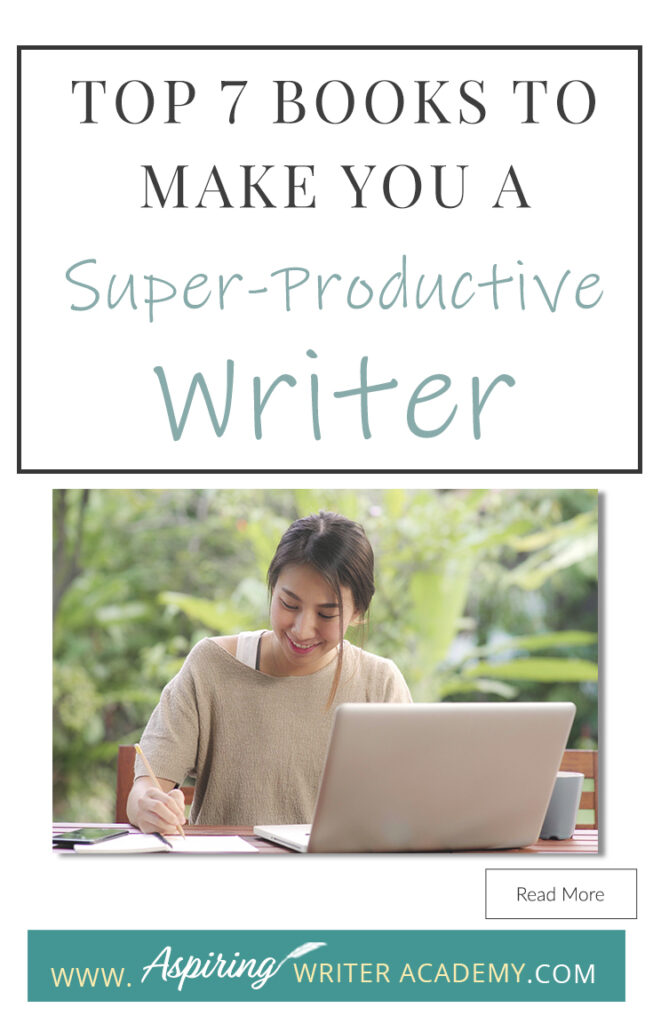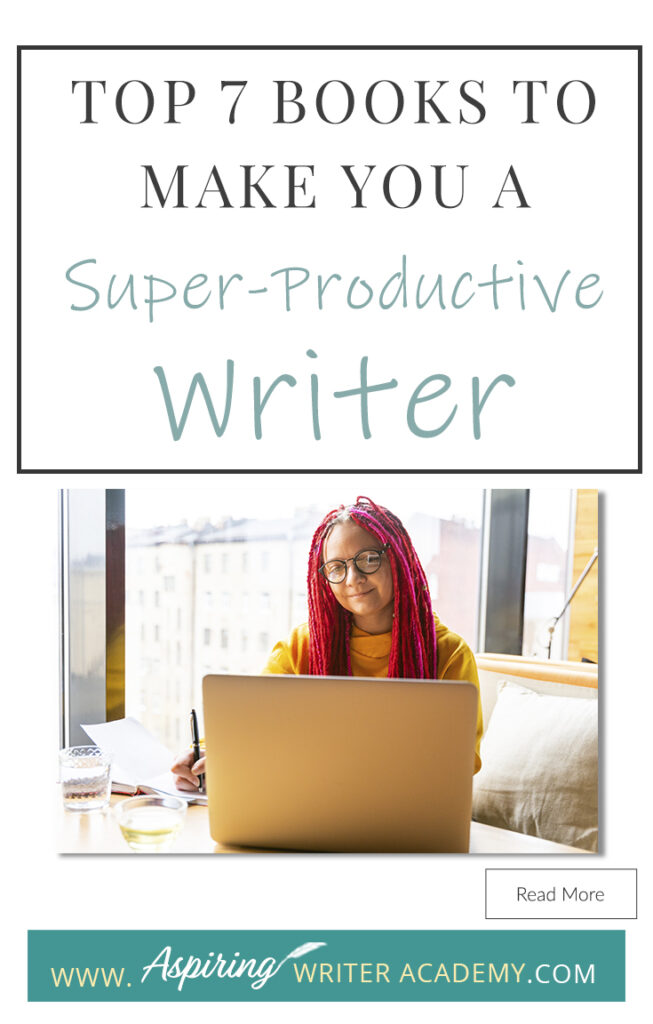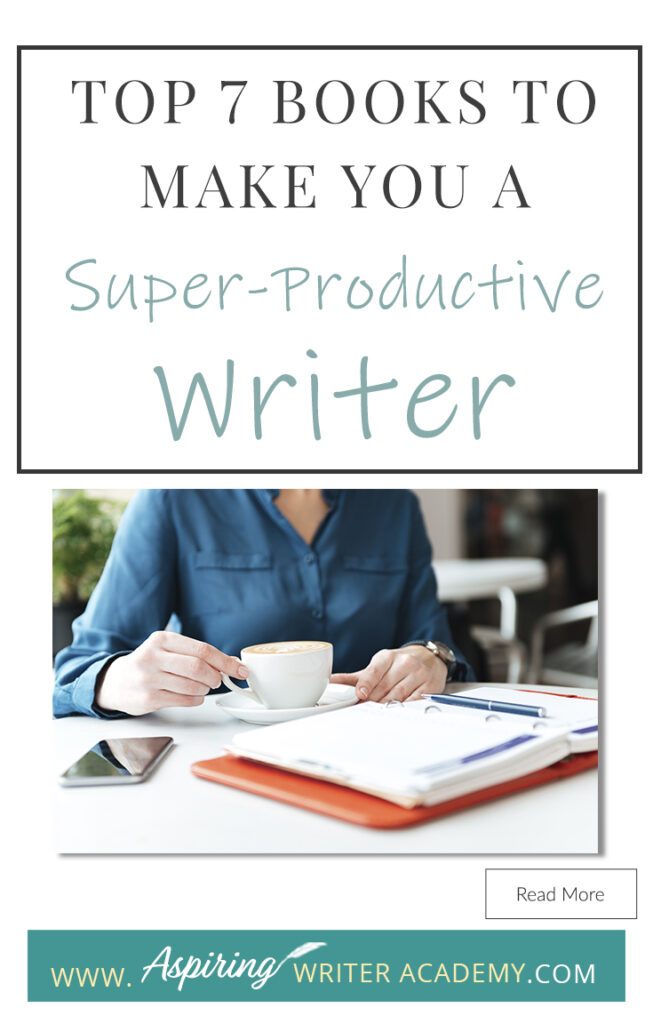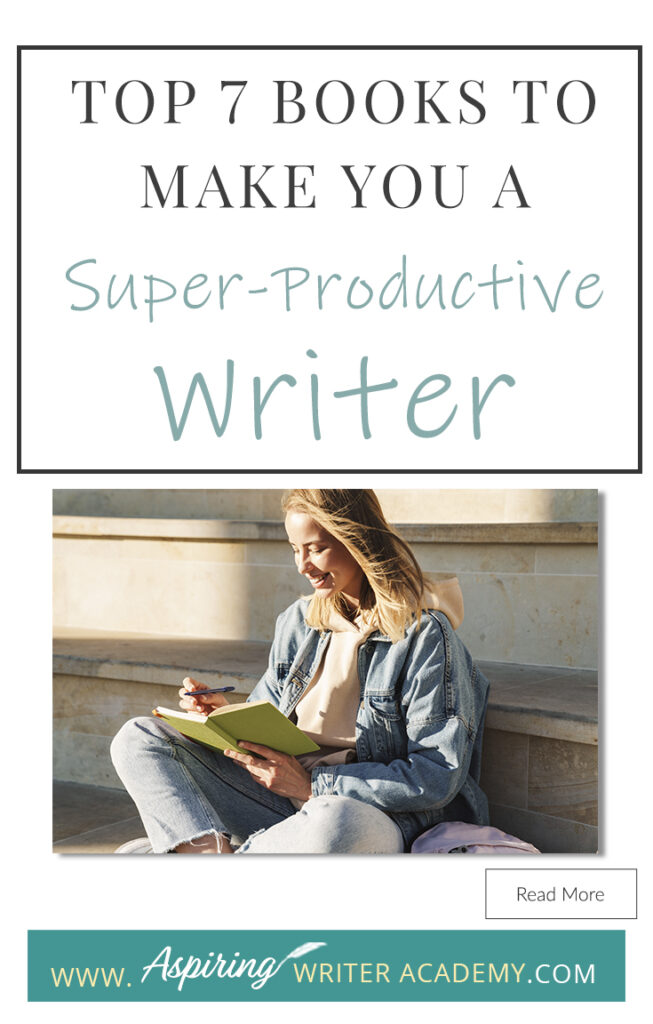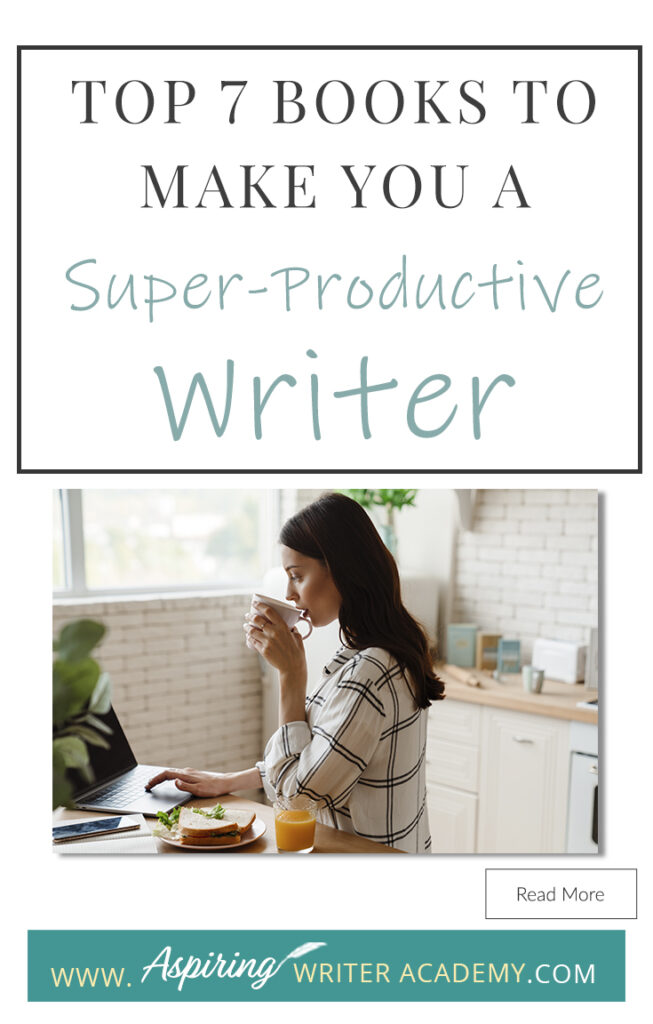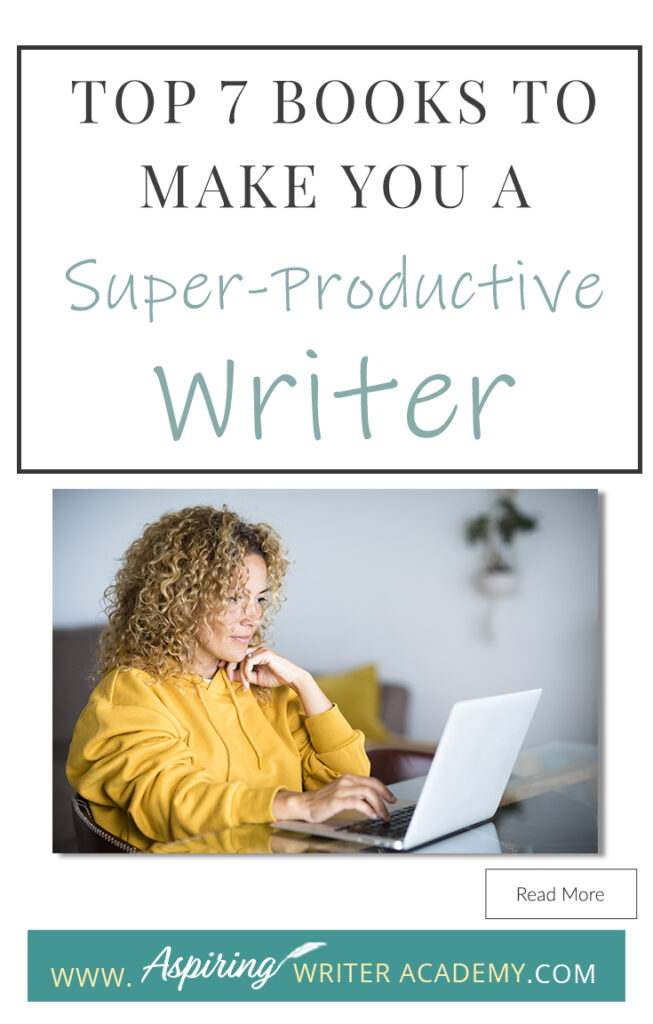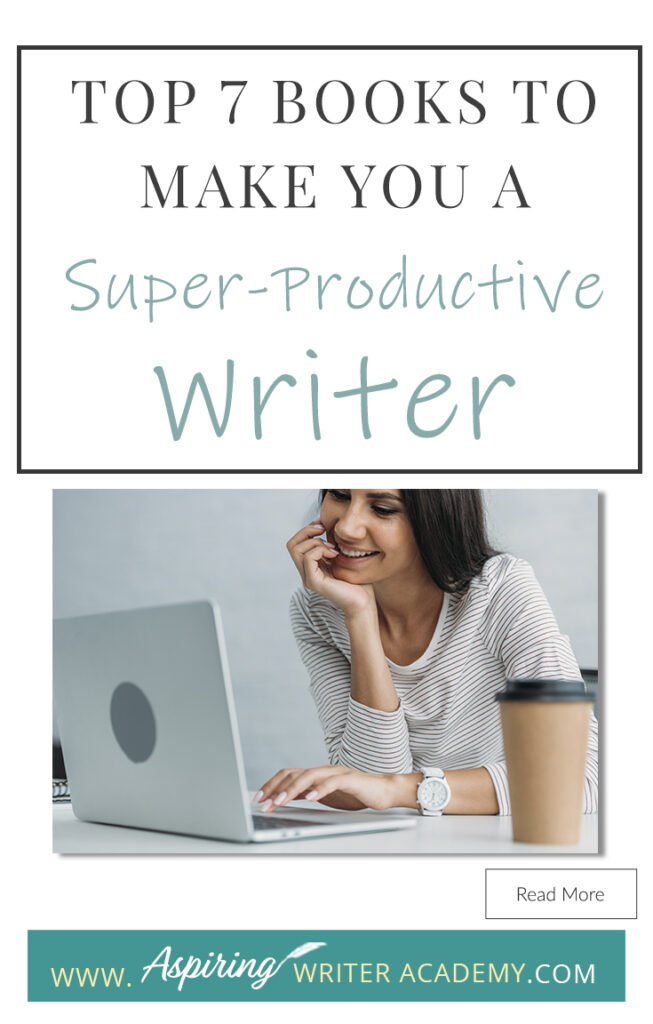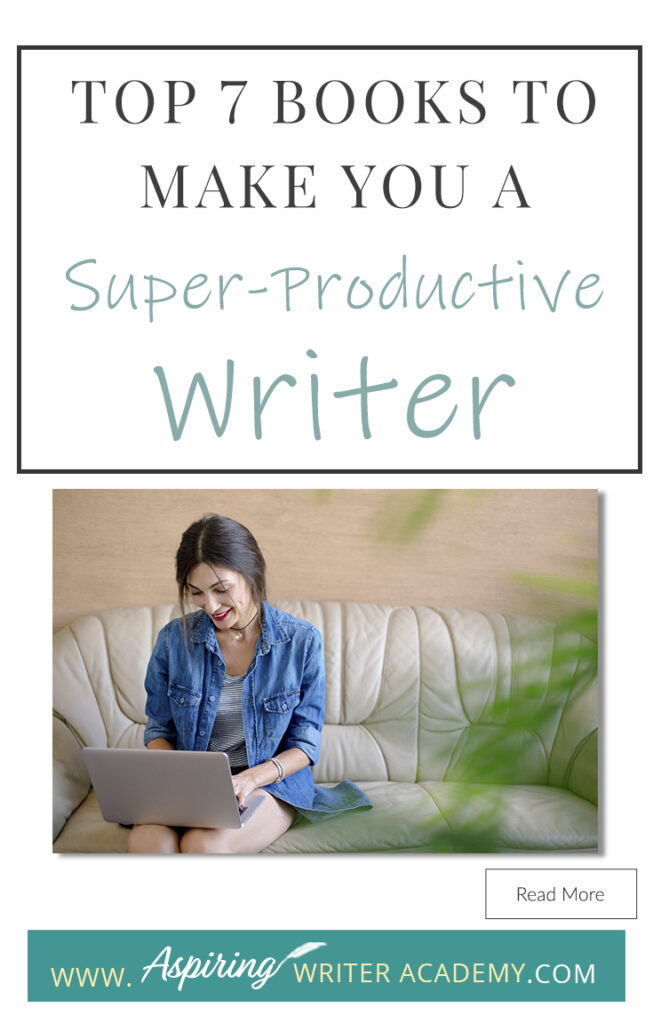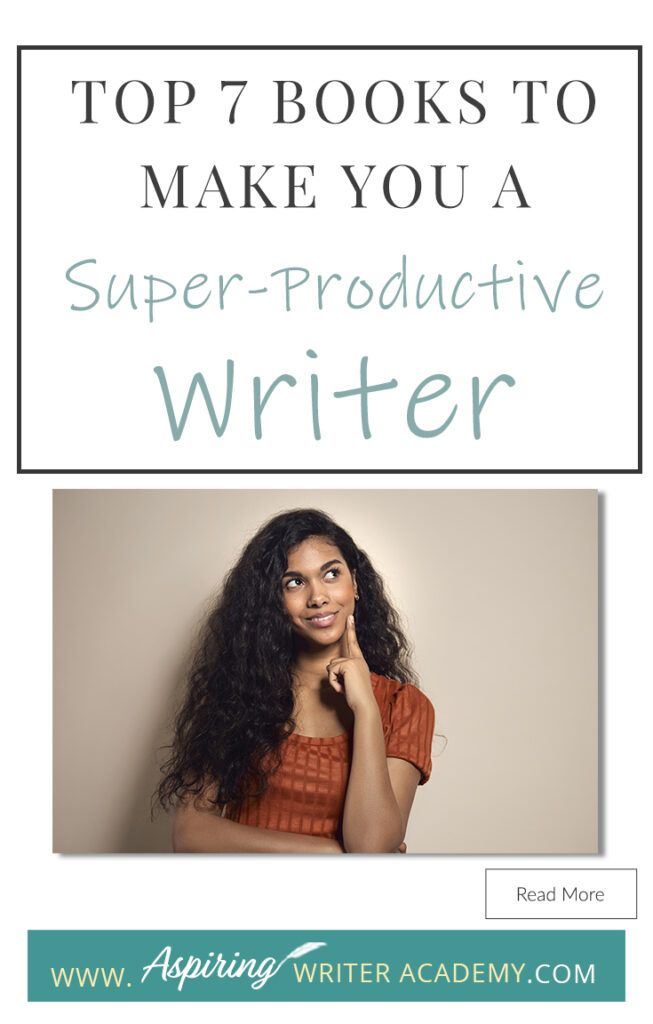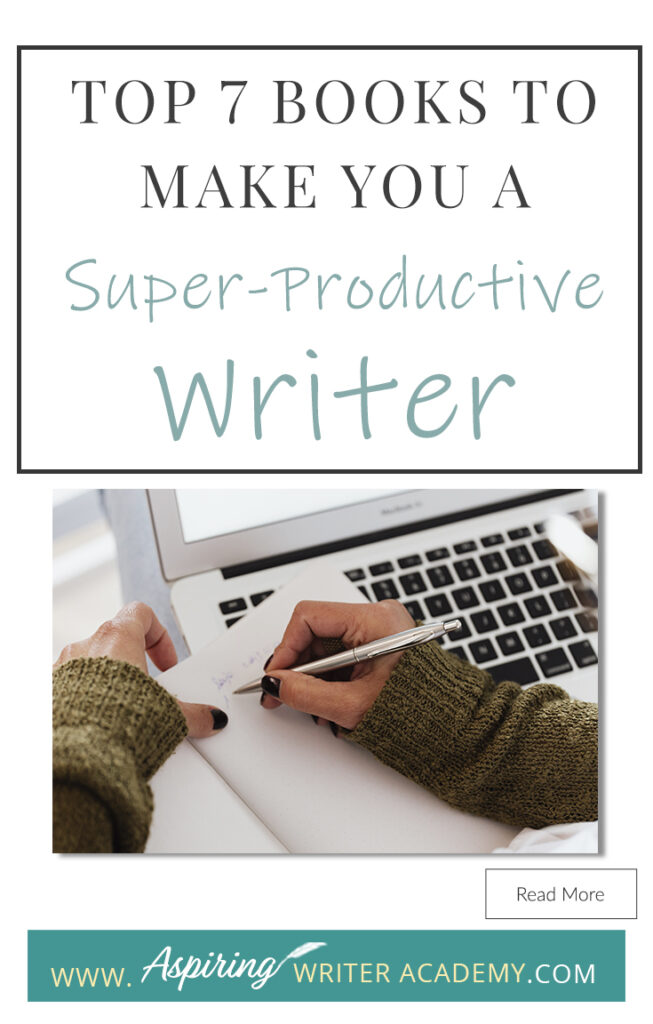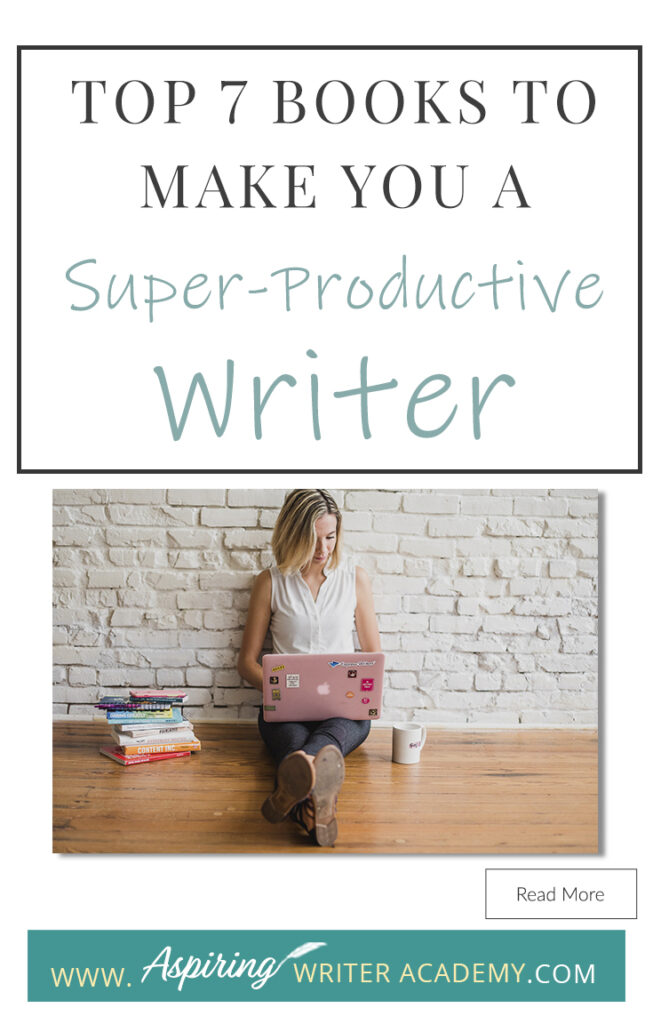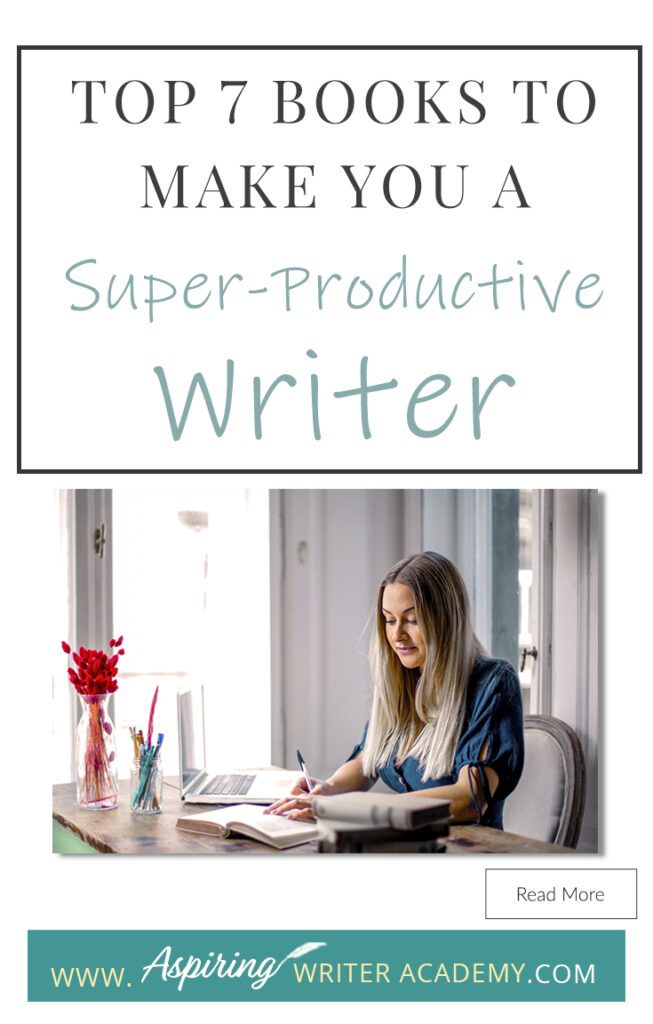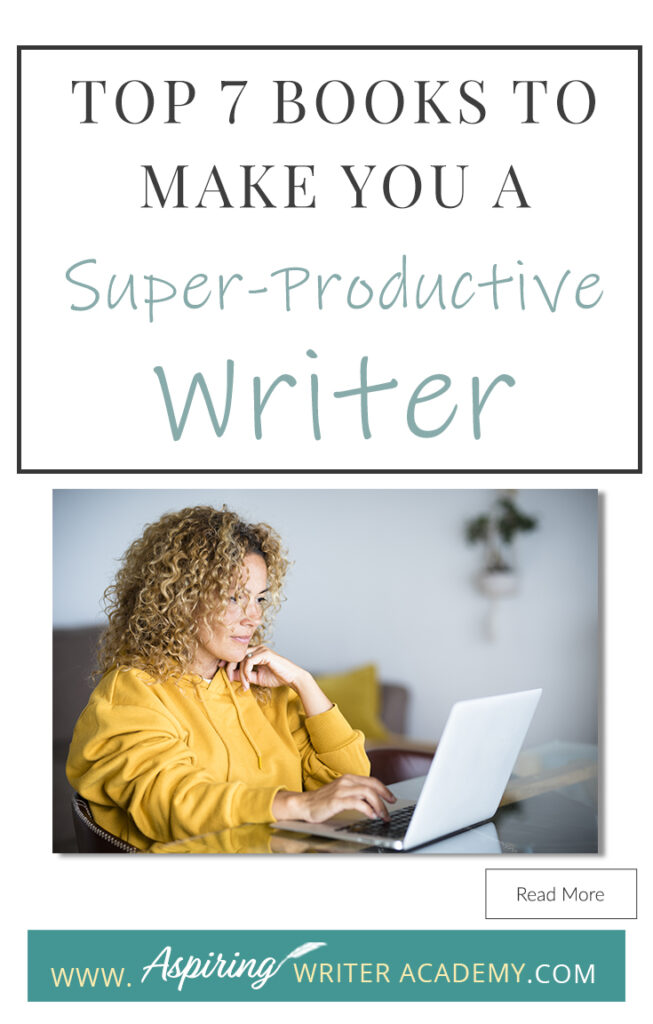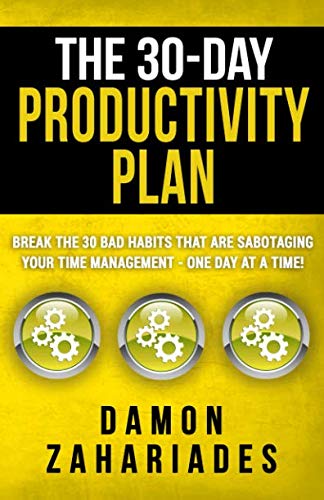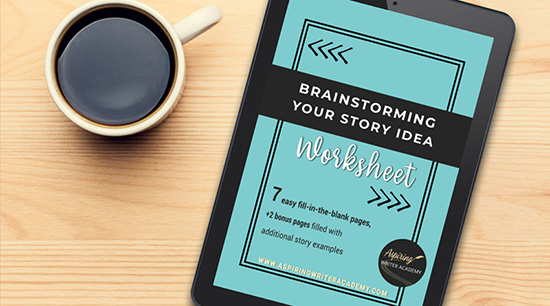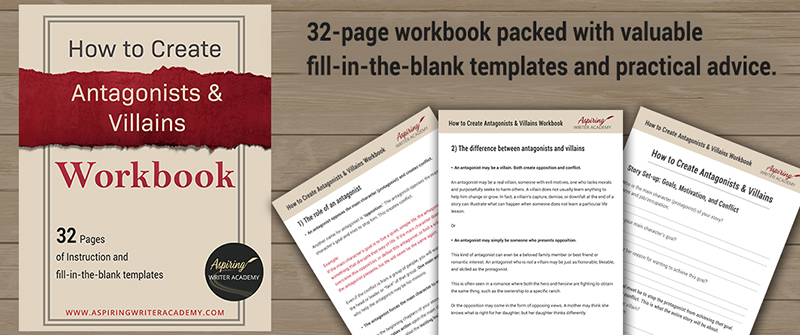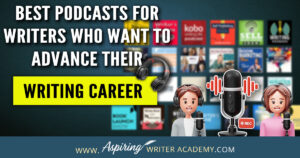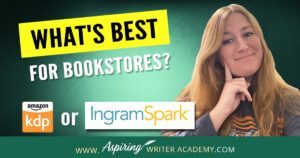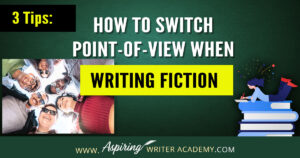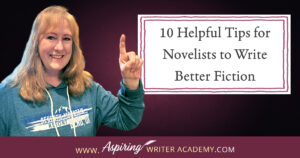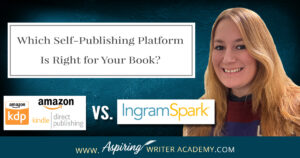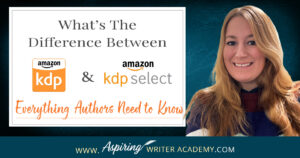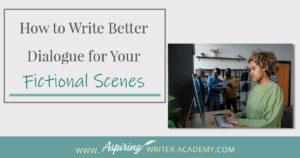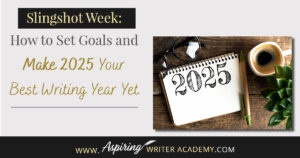Top 7 Books to Make You a Super-Productive Writer
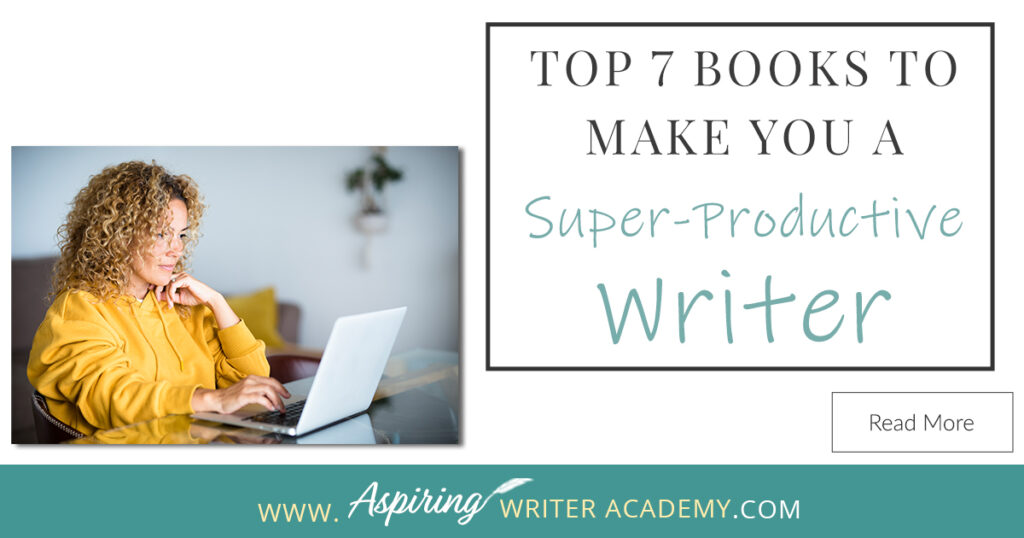
Looking for a way to crank out more written pages? Or wish you could find more time to write in general? Is your calendar or overly ambitious to-do list out of control? How can you write more books if you are always tired, overwhelmed, and feeling like you are always behind?
Our post, 7 Best Books on Productivity to Boost Your Fiction Writing to the Next Level, can help you discover ways to reduce stress, organize your day, and make you more productive than you ever thought possible.
In the post below we will discuss:
- The Compound Effect
- Eat that Frog!
- Write Smart, Write Happy
- Atomic Habits
- The 30-Day Productivity Plan
- The Power of Habit
- The 12 Week Year
Yes, I have actually read each of these fantastic books, some of them multiple times. As a writer, it is important to not only study the craft of writing, but to also find ways to help make you more productive so that you can get your book written and still have time to enjoy life.
In this world today, there are so many distractions pulling us in different directions, each one vying for our precious time. However, unlike A.I. (artificial intelligence), our brains and our bodies do need balance, time off away from the computer. We also need to spend time with friends and family and take care of all the other things cluttering our to-do list.
Each book we list below is a valuable asset to add to your ‘writer bookshelf.’ Hopefully, you can read them again and again to keep yourself motivated, at peace with your writing schedule, and more productive than you have ever been before.
1)The Compound Effect (Jumpstart Your Income, Your Life, Your Success) by Darren Hardy
This book gave me some startling personal realizations about my life. For example, every decision we make, every choice, whether conscious or unconscious, can ultimately change the trajectory of our life and our future. Read this book and learn how you can change your life for the better one tiny step at a time.
2)Eat that Frog! (21 Great Ways to Stop Procrastinating and Get More Done in Less Time) by Brian Tracy
Not only was this book a game changer, but it is now a running joke in our household as my family and I remind each other: “Eat the Frog!” The phrase means ‘get the biggest, hardest task on your to-do list done first so that everything else you need to do that day will seem easier. This has helped me get tasks done that I would normally push off for another time. The other insights that I have gained on productivity have been equally helpful and I appreciate that this book is a very informative, yet easy read.
3)Write Smart, Write Happy (How to Become a More Productive, Resilient, and Successful Writer) by Cheryl St. John
I absolutely love this book! This one is a keeper that I refer to again and again. Written specifically for fiction writers, this book helps you with career planning, eases the frustrations of writing a novel, teaches how to stay productive, and how to keep a writer’s life in balance. I find this book very motivational and inspiring. Filled with practical advice and action steps, this book will help you develop good writing habits and avoid obstacles in your writing journey for the best chance of success.
4)Atomic Habits (Tiny Changes, Remarkable Results) An Easy & Proven Way to Build Good Habits & Break Bad Ones by James Clear
This book is bigger than the others, with lots of graphs, charts, and examples to show you how your habits affect your productivity. Filled with practical strategies and a proven framework for getting 1% better every day. Learn how to transform your habits to reduce stress and achieve the success you desire!
5)The 30-Day Productivity Plan (Break The 30 Bad Habits That Are Sabotaging Your Time Management – One Day At A Time! By Damon Zahariades
Another simple, yet practical book! What I love best about this book is that I can read one short chapter each day and apply the teaching with immediate action steps. Each day has an assignment designed to help you break bad habits and become more productive. This book also surprised me with some insight I didn’t know before. The concept of keeping two to-do lists, a short one for each day and a longer one for everything else that needs to be done in my life, was very helpful. You see, I am guilty of having what the author calls ‘an overly ambitious to-do list.’ Just looking at it each day would make me stressed and overwhelmed. Now I limit what I can do each day and I am making more progress than I was before with more enthusiasm and peace about my schedule.
6)The Power of Habit (Why We Do What We Do In Life And Business) by Charles Duhigg
Like Atomic Habits, this book is more comprehensive than the others, showing you how habits are formed and how you can create better habits that help you accomplish your goals. The right habits can help you find happiness and success.
7)The 12 Week Year (Get More Done in 12 Weeks Than Others Do in 12 Months) by Brian P. Moran and Michael Lennington
This is another book you will want to read more than once. The 12 Week Year is an easy read, very practical, and gives you an actual step-by-step template to create a game-plan to achieve your goals over the next 12 weeks. Fantastic for goal setting and getting results. The information, when put into practice, is sure to boost your productivity and take your writing to the next level. I personally use the 12 Week Year system for my own writing and personal life. I would highly recommend this book to everyone.
We hope you have gained some useful information from Top 7 Books to Make You a Super-Productive Writer, and that you can read these books to help you find more time to write, keep a balanced schedule, and boost your productivity to new levels.
If you have any questions or would like to leave a comment below, we would love to hear from you!
If you like more help developing your story, you may wish to download our Free Brainstorming Your Story Idea Worksheet
Do you find it difficult to create compelling antagonists and villains for your stories? Do your villains feel cartoonish and unbelievable? Do they lack motivation or a specific game plan? Discover the secrets to crafting villains that will stick with your readers long after they finish your story, with our How to Create Antagonists & Villains Workbook.
This 32-page instructional workbook is packed with valuable fill-in-the-blank templates and practical advice to help you create memorable and effective antagonists and villains. Whether you're a seasoned writer or just starting out, this workbook will take your writing to the next level.
Our Goal for Aspiring Writer Academy is to help people learn how to write quality fiction, teach them to publish and promote their work, and to give them the necessary tools to pursue a writing career.
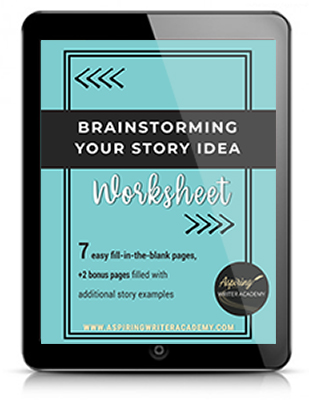
ENTER YOUR EMAIL BELOW
TO GET YOUR FREE
"Brainstorming Your Story Idea Worksheet"
7 easy fill-in-the-blank pages,
+ 2 bonus pages filled with additional story examples.
A valuable tool to develop story plots again and again.
Other Blog Posts You May Like
How to Create S.M.A.R.T. Goals to Keep Your Writing on Track
How to Find a Writing Group: Tips for New Authors
Write Your First Novel: How Do You Start?
Do You Dream of Being a Published Author? (How Bad Do You Want It?)
Who is an ‘Aspiring Writer?’ 3 Tips to Escalate Your Career No Matter What Level You Are At
How to Write the Midpoint of Your Novel (and Avoid a ‘Saggy Middle’)
20 Items to Bring to Your First Writer’s Conference
How to Find a Great Story Idea in 4 Easy Steps
How to Write a Novel While Working Full Time
The Pros and Cons of Writing Holiday Fiction (Collections & Anthologies)
Fiction Writing: How to Find a Critique Partner/Group
How to Research Information for a Historical Novel
7 Steps to Begin Writing a New Fictional Story
Fiction Writing: 5 Key Differences Between a Novel and a Novella
Fiction Writing: Office Supplies to Help You Prepare to Write Your Next Novel
3 Levels of Goal Setting for Fiction Writers

is a multi-published author, speaker, and writing coach. She writes sweet contemporary, inspirational, and historical romance and loves teaching aspiring writers how to write quality fiction. Read her inspiring story of how she published her first book and launched a successful writing career.
